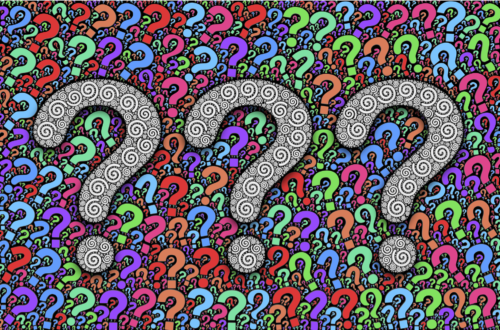
Carl Jung on the Dangers of Modernity
I was in a discussion with fellow Medium writer, Graham Pemberton, over why Carl Jung had refused to meet with the Indian Holy Man, Ramana Maharshi, while he was in India in the 1930s. I had found it strange that Jung refused this opportunity.
Graham suggested I read Jung’s book, Psychology and the East where he explained his reasoning. The passage was interesting, though it still left me with questions.
However, what struck me as more interesting was at the end of that section on Ramana, Jung gave India a warning. India at that time was on the verge of becoming an independent state and entering the modern world. Jung pointed out that while there were benefits to entering the modern world for India, there were also dangers; dangers that are oh so clear to us in the modern world today.
Jung said,
“I say ‘once again’ because India is about to take the fateful step of becoming a State and entering into a community of nations whose guiding principles have anything and everything on the program except detachment and peace of the soul.”
He continued,
“The Eastern peoples are threatened with a rapid collapse of their spiritual values, and what replaces them cannot always be counted among the best that Western Civilization has produced.”
He then goes on to praise the likes of Ramana Maharshi and Ramakrishna as equivalent to Old Testament Jewish Prophets, who exhorted their fellow citizens not to lose sight of the thousand-year-old spiritual culture from which they came.
For, if there is anything we can say about western culture it is that when it enters a country, it destroys the spiritual values of that locale, and replaces them with an outer focused and purely materialistic worldview, where success is measured by the amount of riches one has accrued.
Jung states,
“The breathless drive for power and aggrandizement in the political, social and intellectual sphere, gnawing at the soul of the Westerner with apparently insatiable greed, is spreading irresistibly in the East and threatens to have incalculable consequences.”
Jung admits some material benefits may be had, but warns,
“The externalization of culture may do away with a great many evils whose removal seems most desirable and beneficial, yet this step forward, as experience shows, is all too dearly paid for with a loss of spiritual culture.”
Jung goes on to explain what happens to the soul of these people,
“The man whose interests are all outside is never satisfied with what is necessary, but is perpetually hankering after something more and better which, true to his bias, he always seeks outside himself. He forgets completely that, for all his outward successes, he himself remains the same inwardly, and he therefore laments his poverty if he possesses only one automobile when the majority have two.”
Jung continues his warnings that the end result of modernization is the loss of our inner self, and therefore our connection to everything and everyone. When this is lost, we are left floating in a meaningless void that we desperately try to fill with things. Jung says,
“The externalization of life turns to incurable suffering, because no one can understand why he should suffer from himself. No one wonders at his insatiability, but regards it as his lawful right, never thinking that the one-sidedness of this psychic diet leads in the end to the gravest disturbances of equilibrium. That is the sickness of Western man, and he will not rest until he has infected the whole world with his own greedy restlessness.”
Jung then makes this appeal.
“The wisdom and mysticism of the East have, therefore, very much to say to us, even when they speak their own inimitable language. They serve to remind us that we in our culture possess something similar, which we have already forgotten, and to direct our attention to the fate of the inner man, which we set aside as trifling.”
And despite not choosing to meet with Ramana Maharshi when he had the chance, Jung praises the importance of his message, especially in these trying times.
“The life and teaching of Shri Ramana are of significance not only for India, but for the West too. They are more than a document humain: they are a warning message to a humanity which threatens to lose itself in unconsciousness and anarchy.”
The warnings Jung gave to India over seventy years ago are still relevant today. We are a world unhinged. We have lost our connection to anything deeper and more meaningful than the endless pursuit of greed and power. We are so lost that we think very little of the threat that climate change poses, or of the endless wars being fought; the latest of which is inching its way toward a nuclear catastrophe.
Would a sane species behave like this? Jung’s warnings about the danger of the modern worldview are even more urgent today.
To learn more about the magic of the universe: Click this link: The Magical Universe.
Image by Gerd Altmann from Pixabay




